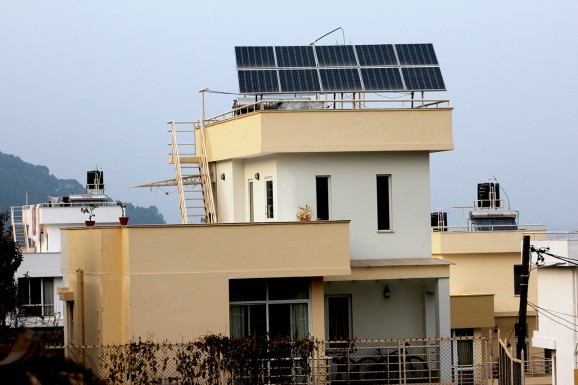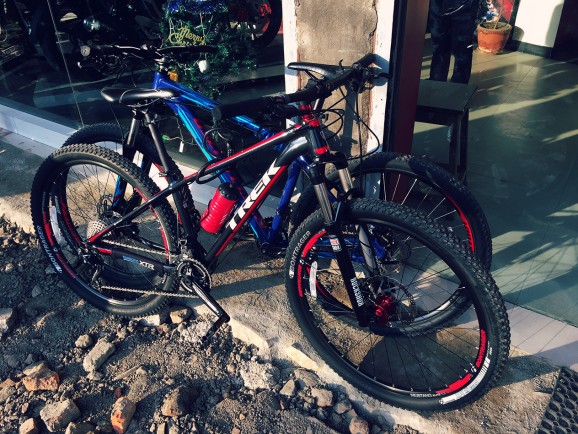As I cycle from my home to my office, I see hundreds of cars, motorbikes and other vehicles in a long serpentine line, a common sight across the capital of Nepal for almost 4 months now. Their owners waiting in line, for hours or days, to buy a few liters of fuel. There is no guarantee that every customer will be served, and the police are on guard in case the frustration of waiting turns to outbursts of anger.
This ordeal was a result of the chain of events after Nepal adopted a new constitution on the 20th of September 2015. The political causes and nuances of these events can be debated endlessly, but the result has been that imports from India are at a standstill. Nepal, a landlocked country, is heavily dependent on India, even for necessary everyday supplies like fuel. As the political unrest lengthens, the halt in fuel shipments has threatened the country’s energy security and slowly it is snowballing into an economic crisis, affecting transportation and tourism among other industries.
The fuel shortages have been hitting us hard, crippling lives all over, there is no disagreeing that. But life still goes on. Even though an end to this crisis would be great, it won’t mean an end to all our supply problems. The fuel crisis is showing some early signs of easing, but we are already starting to see extended power cuts. Everyone who is living and working in Nepal has to find a way to work around these problems. We do what we can: to make changes in our own homes and changes in our living styles to cope with these hard times and for a better future.
I myself am trying to switch to more alternative and safe measures. Recently, I installed solar panels at my residence. I had 100 panels of 200W installed on the roof of my house with a 3.5KVA inverter. I had them installed right before the blockade because I was fed up of the random load shedding and power outages. They always ‘blockaded’ my work. The installation wasn’t cheap, costing about Rs. 500K to have the panels up and running. But I installed it with a long term view, and I am certain it will prove its worth.

Even now, when rest of my neighbors complain about the load shedding and how their inverters & USPs don’t get to charge enough, I am in my room with uninterrupted power supply; working on my laptop, the internet running, my son watching TV with his mother, refrigerator running 24/7 and my fishes getting continuous oxygen and heat. I am virtually independent of Nepal Electricity Authority’s pitiful service. Further, utilizing the perpetual solar energy, I have swapped the conventional liquefied petroleum gas for cooking on induction stoves. When everyone else is being forced to buy gas cylinders in the black market or resorting to the primitive firewood, the people who have invested on solar panels are reaping its benefits.
To cut my fuel consumption, I have also started to cycle to work from home and vice versa. It saves me the trouble of having to wait hours to get a few liters of petrol and diesel. The other plus of cycling is that it is doing wonders for my health. I feel invigorated at work. Never have I ever felt so light and lively. These changes have, without a doubt, increased my quality of life, and my peace of mind.

By now, we, Nepalis, know better than to wait for the government to come solve our problems. Instead of waiting for petrol, cooking gas, or electricity and suffering the stresses that come with it, I endorse doing small things like this that increase self-reliance.

Thank you Sakin, really inspiring me. I plan to buy bike next month. I have used it for many years but when i come back to Romania 3 years ago, i stopped to use it. I Also plan to use induction technology instead gas for cooking. We can change but the first move is up to ourselves.